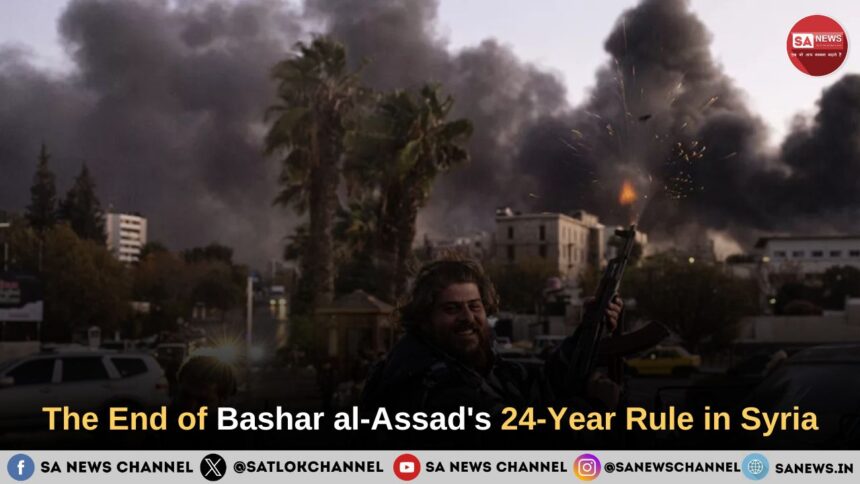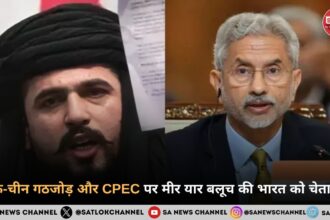After nearly 15 years of brutal civil war, the 24-year rule of Syrian President Bashar al-Assad has come to an end. On December 8, 2024, opposition forces seized control of the capital, Damascus, marking a dramatic turn in the country’s tumultuous history. Assad, who came to power in 2000 following the death of his father, Hafez al-Assad, fled the country as his regime crumbled.
The Fall of Damascus
The fall of Assad’s government was both swift and unexpected. A surprise offensive launched by opposition groups in late November caught government forces off guard. With support from regional and international powers, the rebels managed to overrun Damascus in less than two weeks. The Syrian army, once a formidable force, quickly collapsed, and Assad’s allies, preoccupied with other conflicts, were reluctant to intervene.
Also Read: Iran Confirms Launch of 200 Missiles at Israel; Israel Issues Warning of Consequences
The Syrian civil war, which began in 2011 as part of the broader Arab Spring movement, has been one of the most devastating conflicts of the 21st century. The war has claimed nearly half a million lives and displaced millions of Syrians, creating a humanitarian crisis of unprecedented scale. Assad’s regime, known for its brutal tactics and widespread use of torture and extrajudicial executions, faced fierce resistance from various opposition groups.
Uncertain Future
As the dust settles, the future of Syria remains uncertain. The opposition forces, led by Hayat Tahrir al-Sham (HTS), have declared Damascus liberated and are now in control of key facilities, including the police headquarters and television networks. However, the path to stability and peace is fraught with challenges. The country is left in ruins, and millions of Syrians are wondering what comes next.
The Role of Spiritual Guidance
In the midst of such turmoil, spiritual guidance can play a crucial role in healing and rebuilding. According to Sant Rampal Ji Maharaj, a spiritual leader known for his teachings on inner peace and harmony, spirituality is essential in resolving conflicts and fostering unity. He emphasizes the importance of compassion, forgiveness, and understanding in overcoming violence and hatred. By embracing these values, individuals and communities can work towards a more peaceful and just society.
Sant Rampal Ji Maharaj’s teachings highlight the need for a shift in mindset from conflict to cooperation. He believes that true peace can only be achieved when people recognize their shared humanity and work together for the common good. In the context of Syria, this means fostering dialogue, reconciliation, and mutual respect among all parties involved.









